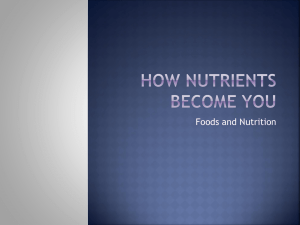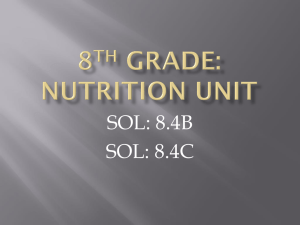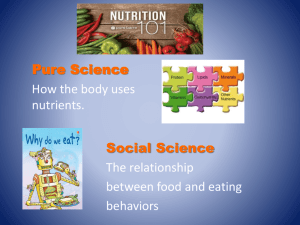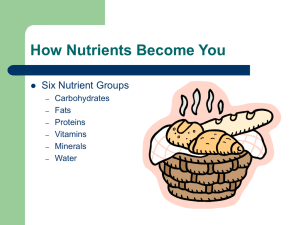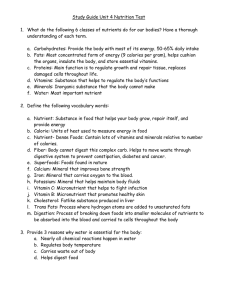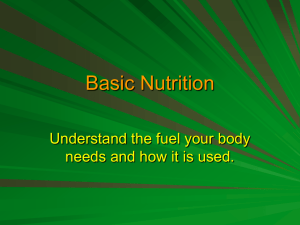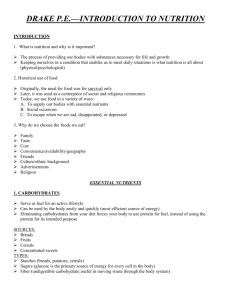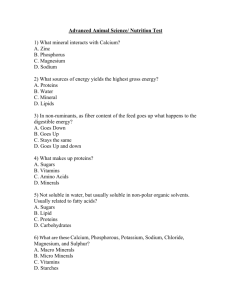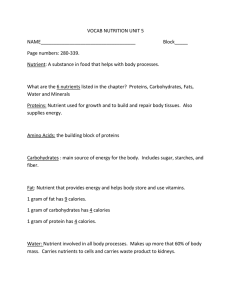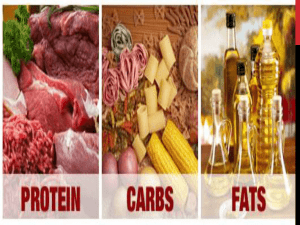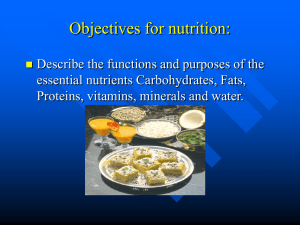8th Grade NUTRIENT Study Guide
advertisement
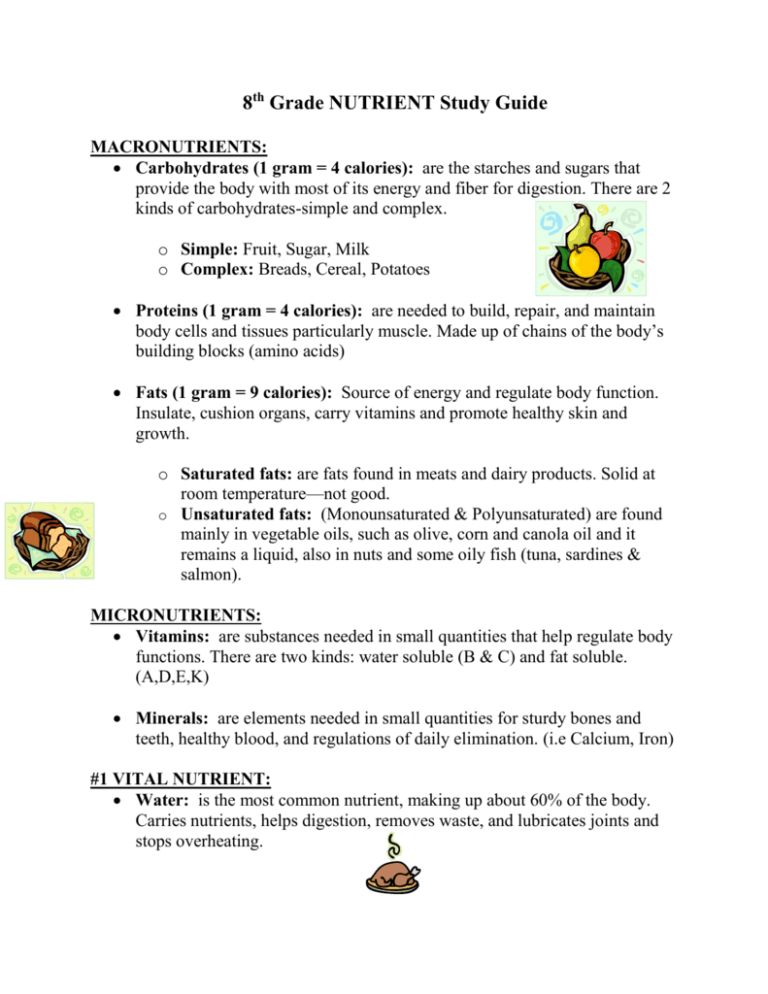
8th Grade NUTRIENT Study Guide MACRONUTRIENTS: Carbohydrates (1 gram = 4 calories): are the starches and sugars that provide the body with most of its energy and fiber for digestion. There are 2 kinds of carbohydrates-simple and complex. o Simple: Fruit, Sugar, Milk o Complex: Breads, Cereal, Potatoes Proteins (1 gram = 4 calories): are needed to build, repair, and maintain body cells and tissues particularly muscle. Made up of chains of the body’s building blocks (amino acids) Fats (1 gram = 9 calories): Source of energy and regulate body function. Insulate, cushion organs, carry vitamins and promote healthy skin and growth. o Saturated fats: are fats found in meats and dairy products. Solid at room temperature—not good. o Unsaturated fats: (Monounsaturated & Polyunsaturated) are found mainly in vegetable oils, such as olive, corn and canola oil and it remains a liquid, also in nuts and some oily fish (tuna, sardines & salmon). MICRONUTRIENTS: Vitamins: are substances needed in small quantities that help regulate body functions. There are two kinds: water soluble (B & C) and fat soluble. (A,D,E,K) Minerals: are elements needed in small quantities for sturdy bones and teeth, healthy blood, and regulations of daily elimination. (i.e Calcium, Iron) #1 VITAL NUTRIENT: Water: is the most common nutrient, making up about 60% of the body. Carries nutrients, helps digestion, removes waste, and lubricates joints and stops overheating. Nutritional Functions of Carbohydrates The body’s most important source of energy—calories Allow proteins to be used for building and repairing the body cells Nutritional Functions of Proteins Used mainly for building and maintaining all body tissues Enzyme, hormone, and antibody proteins help regulate body processes Used as an energy source to supplement carbohydrates and fats Nutritional Functions of Fat An important source of calories Carries fat soluble vitamins (A,D,E & K) into your blood Provides essential fatty acids Adds flavor to food Helps to satisfy hunger due to slower digestion Serves as a form of stored energy Protects vital organs from injury Insulates body from heat and cold Nutritional Functions of Vitamins Assist in the regulation of many body processes Work with enzymes by triggering chemical reactions which allow the digestion, absorption, metabolism, and use of other nutrients Speed up reactions that produce energy in body cells Nutritional Functions of Water Carries nutrients to the cell Transports wastes from the cell Lubricates the joints and mucous membranes Enables the body to swallow and digest foods Enables the body to eliminate waste Cools the body down through the process of perspiration Prevents the buildup of the internal heat
